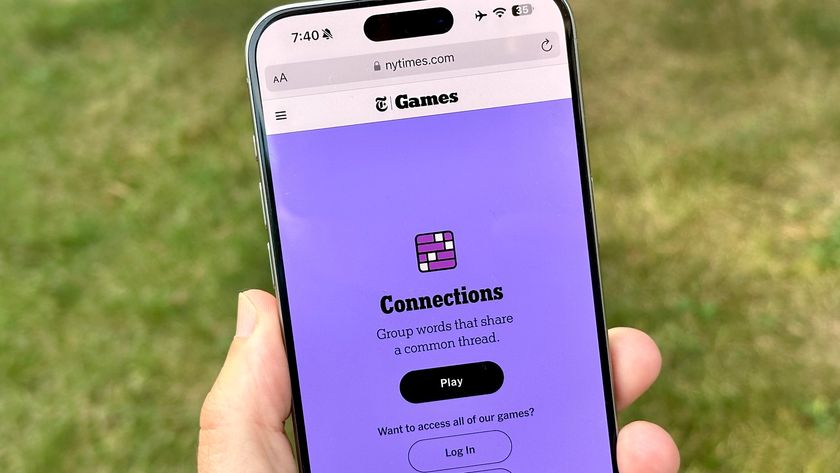iPod Touch Bluetooth Unlocked by OS 3.0
What? Huh? There's Bluetooth in my touchy little iPod Touch? It's probably a given that many consumers had no idea the device has Bluetooth capabilities, remaining dormant... until now.

What? Huh? There's Bluetooth in my touchy little iPod Touch? It's probably a given that many consumers had no idea the device has Bluetooth capabilities, remaining dormant... until now.
In all the hoopla regarding the iPhone and the upcoming 3.0 OS, it's less-than-loaded half-twin, the iPod Touch 2G (second generation), sat just off stage, wishing it could chime in on some of the spotlight. But, instead of sulking and hanging its head low, the iPod Touch listened, waited, bid its time until someone caught on that the new OS update would unlock a secret treasure laying dormant within. No, it's not an Alien embryo waiting to burst through the cavity of its slick, touchscreen surface. It's another blue little demon altogether: the sacred Bluetooth.
For many consumers, the revelation of this feature is quite a pleasant surprise. But for tech-savvy fans who have kept up with the technology powering the device, they may already be aware of the Broadcom BCM4325 wireless communications chip planted within; it was discovered back in September 2008 in a hardware tear-down performed by iFixit. To be more specific, the uncovered Broadcom chip was found capable of single-band 2.4GHz 802.11b/g, dual-band 2.4GHz and 5GHz 802.11a/b/g. Additionally, it had Bluetooth 2.1 + EDR support and an advanced FM receiver. Simply put, Wi-Fi and Bluetooth capabilities were already present in the iPod Touch, with the latter deactivated via software.
At the time, it was widely speculated that the chip was mainly used to communicate with the Nike+ iPod sensor puck accessory, however some believed that perhaps Apple had other sinister plans for the Bluetooth portion, and just wasn't in the mood to share the Bluetooth goodness just yet. Evidently the speculators were correct, as it's now official that the iPod Touch 2G is fully capable of Bluetooth audio and data transmission, able to carry out Bluetooth functions such as wireless streaming 2-channel audio with A2DP, wireless accessory control (perhaps for gaming), and peer-to-peer connections. The upcoming 3.0 OS will enable these features, costing consumers $9.95 to upgrade the current OS to 3.0.
It's not uncommon to see device manufacturers stuff their products with deactivated components, or locking said components via firmware by the request of the supplier. Many Verizon subscribers have lashed out at the wireless provider, having "locked" the built-in GPS chip in BlackBerry devices from 3rd-party navigational applications. Thus, Verizon Wireless customers must subscribe to its VZNavigator subscription service, shelling out an additional $10 per month just for it use alone (not including any data packages). As it stands, BlackBerry users on Verizon cannot use the real-time navigational features in other applications such Google Maps, Yahoo maps and so on, having to settle with triangulation options instead.
However, for a one-time fee of $10, the 3.0 OS upgrade for Apple's iPod Touch seems to be worth every penny, offering not only the new Bluetooth features, but other vast improvements that will make the device that much more useful and fun to play. With peer-to-peer connections, gaming will become even more prominent on the device, offering local multiplayer support previously limited to Wi-Fi connections.
Look for the 3.0 OS upgrade sometime this summer.
Sign up to get the BEST of Tom's Guide direct to your inbox.
Get instant access to breaking news, the hottest reviews, great deals and helpful tips.
Kevin started taking PCs apart in the 90s when Quake was on the way and his PC lacked the required components. Since then, he’s loved all things PC-related and cool gadgets ranging from the New Nintendo 3DS to Android tablets. He is currently a contributor at Digital Trends, writing about everything from computers to how-to content on Windows and Macs to reviews of the latest laptops from HP, Dell, Lenovo, and more.
-
icepick314 paying for something that was already included in the device is shady...even for Apple...Reply
what was the reason behind holding back full bluetooth support? -
Hehe suckas... now there is no reason to ever buy an iPhone. Get a bluetooth headset and some voip software on your iPod Touch and you are good to go. (for much cheaper too)Reply
-
The Schnoz So let me get this straight. For only $10 I can use a feature in my iPod Touch that I should have been able to use from the beginning? Considering this is Apple thats a deal. I would have expected to pay much more!!!Reply
Maybe Apple was just following a page from Sony's playbook. They're not ripping their loyal customers off, they're simply extending the longevity of their system. One purposely makes a system thats difficult to program for and the other disables a useful feature that everyone would like to use, denies its existence, and then charges $10 a pop to turn the feature on through a software download whle the hardware was sitting dormant the whole time.
Yep, they're both going to hell. -
pharge hmm... how about 1st generation itouch? out of luck?Reply
by the way " Additionally, it had Bluetooth 2.1 + EDR support and an advanced FM receiver. " FM receiver?!....O.o; .... ugh... iFM @ OS 4.0?...;) -
hellwig eddieroolzImagine FM in an iPod.Now die. Because it isn't going to happen.I wonder if this was some deal with the RIAA, disabling FM functionality. Imagine listening to FREE music on your iPod, highly unlikely. Forgetting the fact that the record companies get licensing fees from radio stations, the RIAA isn't going to let you listen to that music when you can buy it at 99 cents a song. That said, you can get FM radios at the dollar store, so hopefully no one thinks they're really missing out on a whole lot here.Reply
My old Nokia Music XPress x5300 had an FM receiver, but it used the headphones for the antenna. I never found a whole lotta use for it.
Now, I thought the old iPods had BlueTooth functionality in them, is that not the case, is this the first iPod with BlueTooth?
-
I dont understand the writers attitude towards this kind of treatment towards its customers. This is a bad trend. First Tivo charges people for no service. Already when you purchase the box, it is capable of recording and being used as a media center, but they lock that function. Now Apple starts charging for things that already is expected to be FREE in ALL electric devices. Next, you will be charged a monthly fee for using your purchased steering wheel or the brakes of your new car. This kind of tolerance for consumers must stop. They must exercise their frustration by boycotting these companies.Reply
"However, for a one-time fee of $10, the 3.0 OS upgrade for Apple's iPod Touch seems to be worth every penny" -
Does anyone know if we will be able to use the IPOD bluetooth to link to the internet via a mobile phone?Reply
For those people that don't want the IPhone, but like using their IPOD for email when they are traveling, this would mean they can still get their email on the move!



